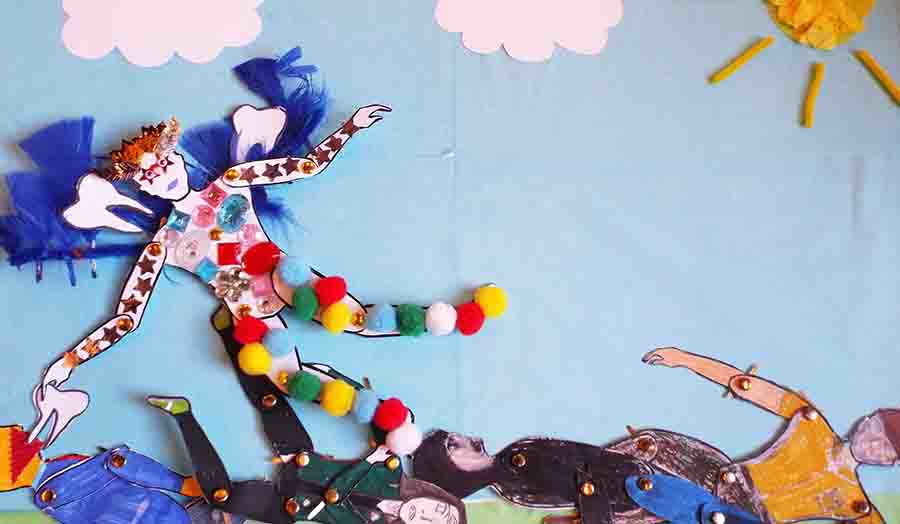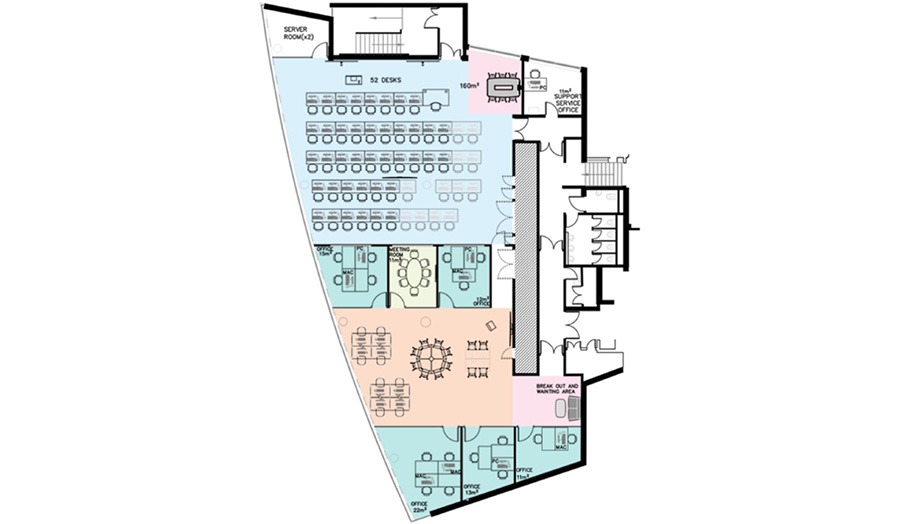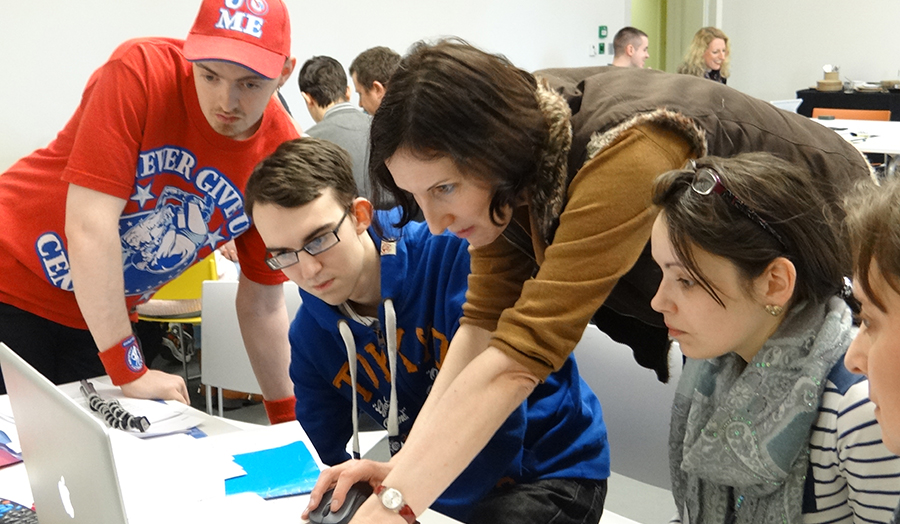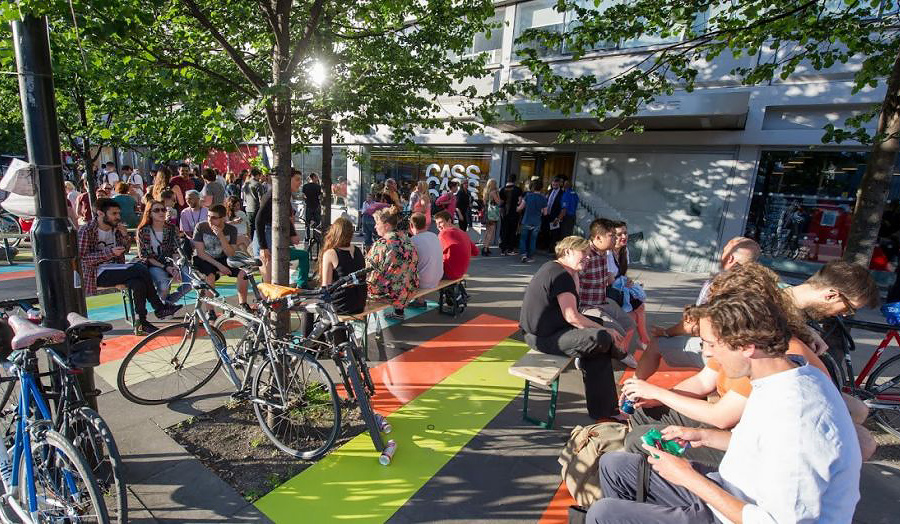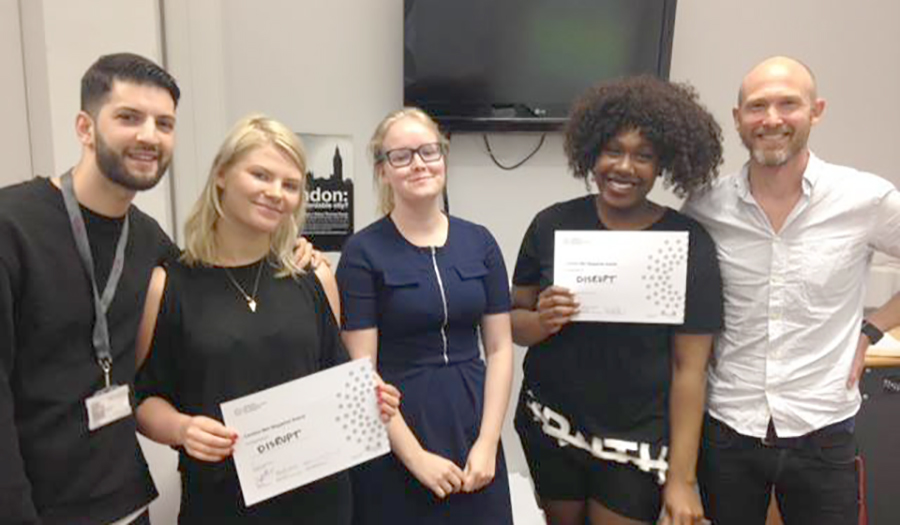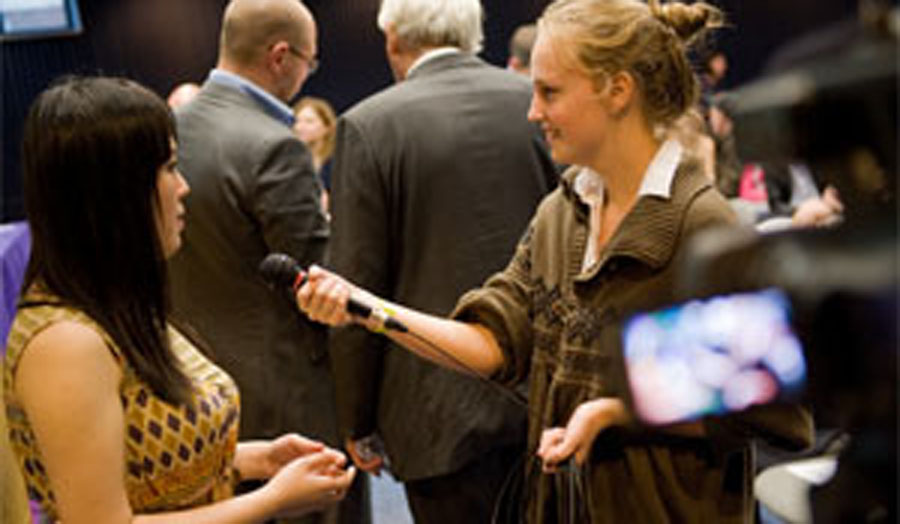Why study this course?
Our Digital Media (including foundation year) BA (Hons) degree is the ideal choice if you’d like to study at undergraduate level but don’t meet the necessary requirements to enter the standard three-year course. You’ll graduate with the same award and title as students on the standard course.
The course has a built-in foundation year (Year 0) to equip you with fundamental study skills within the context of digital media and communications. In the final three year of your degree, teaching will be focused on preparing you for a career within the digital media sector.
More about this course
On our practically-oriented Digital Media (including foundation year) BA (Hons) course you’ll develop skills in functions relating to digital media, such as marketing, design and production.
We place emphasis on providing students with exceptional support to help them settle into university, excel academically and become competitive in the job market. You’ll not only receive support from your tutors but also be able to take advantage of workshops designed to improve your study and future career skills. There will also be opportunities to get involved with extracurricular activities and join societies, which will help you make the most of your university experience and gain a range of transferable skills.
During the foundation year you’ll be introduced to a range of cultural and contextual practices within creative practice and digital media fields. You’ll focus on developing the ability to ask questions, analyse arguments, think independently and reach conclusions relating to art, design and media. The modules will also introduce you to different formats common across creative practices, providing you with the techniques and methods that will be necessary in the production, management and evaluation of digital media.
In the subsequent three years of your study you’ll join students on the standard course. You can learn more about what you’ll study during the final three year by visiting our Digital Media BA (Hons) course page. If, by the end of your foundation year, you’d like to change your degree specialism there will be flexibility for you to do this.
You can get a taste for life at our School of Computing and Digital Media by taking a look at our showcase of recent student work.
Assessment
Methods of assessment will include coursework, portfolio work, individual and group projects, presentations, written reports essays and a final year project.
Fees and key information
Apply nowEntry requirements
In addition to the University's standard entry requirements, you should have:
- at least one A level (or a minimum of 32 UCAS points from an equivalent Level 3 qualification, eg BTEC Subsidiary/National/BTEC Extended Diploma)
- English Language and Mathematics GCSE at grade C/4 or above (or equivalent, eg Functional Skills at Level 2), if you meet UCAS points criteria but obtained a grade D/3 in English and/or Maths at GCSE you may be offered a University test in these areas
Accreditation of Prior Learning
Any university-level qualifications or relevant experience you gain prior to starting university could count towards your course at London Met. Find out more about applying for Accreditation of Prior Learning (APL).
English language requirements
To study a degree at London Met, you must be able to demonstrate proficiency in the English language. If you require a Student visa (previously Tier 4) you may need to provide the results of a Secure English Language Test (SELT) such as Academic IELTS. This course requires you to meet our standard requirements.
If you need (or wish) to improve your English before starting your degree, the University offers a Pre-sessional Academic English course to help you build your confidence and reach the level of English you require.
Modular structure
The modules listed below are for the academic year 2023/24 and represent the course modules at this time. Modules and module details (including, but not limited to, location and time) are subject to change over time.
Year 0 modules include:
- This module currently runs:
- all year (September start) - Tuesday afternoon
- all year (September start) - Tuesday morning
This module will provide students with a number of introductory practical skills in relation to film and television production and a range of broadcast media. Through practice-based exercises aimed at introducing photographic, digital and filmmaking skills, students will begin to explore issues of, for example, editing and sound. They will also begin to reflect upon their learning, and thereby begin to develop and improve upon their future learning experience.
This module aims to:
● Introduce students to the practical study of film, television and broadcast media;
● Provide students with basic skills in photography and digital filmmaking;
● Develop students’ strategies for working in groups, collaboration and teamwork;
● Provide students with the opportunity to reflect upon their learning and develop corresponding skills;
● Prepare students for the practical study of film, television and broadcast media at Level 4. - This module currently runs:
- all year (September start) - Wednesday afternoon
The module is an introduction to the field of digital media as an area of practice, as culture, and as a set of structures. It is a theory and practice based module providing students with foundation knowledge and skills to effectively analyze but also produce simple digital artefacts. It allows students to develop an understanding of the wider context of digital media production but also to apply key ideas in their own production.
This module aims to:
∙Introduce students to digital media history and culture providing a foundation for further study
∙Encourage the development of critical and analytical skills through the exploration of digital practice
∙Aid the development of digital production skills through practical workshops and assessments
∙Prepare students for the practical study of digital media at Level 4.
- This module currently runs:
- autumn semester - Thursday afternoon
You will gain the basic skills required to write clear, grammatically correct and concise journalistic copy across a range of media platforms. Practical skills will be taught by examining good journalistic practice across all platforms, including social media. Interview skills will be taught through reporting tasks. These will be set within the context of current affairs and ongoing media debates. This module aims to:
- Equip students with the ability to write copy to a publishable standard with no factual or grammatical errors;
- Aid students in using sources to construct clear and accurate factual written articles
- Develop research skills across printed, electronic and primary sources.
- Improve understanding of grammar, punctuation and spelling
- This module currently runs:
- all year (September start) - Wednesday morning
This module will provide students with an introduction to the study of the mass media and facilitate development of key academic research and writing skills. The module is organised around five blocks each of which introduces debates and discussions about one aspect of the study of the mass media, leading to a short assessment exercise.
The module is designed to facilitate the transition into undergraduate study by encouraging critical engagement and the development of basic academic skills and competencies.
This module aims to:
●Introduce students to key debates in the study of the mass media to provide a foundation for further study.
●Encourage the development of critical and analytical skills through guided study and coursework preparation
●Encourage the development of key academic writing, reading and research skills and competencies
●Prepare students for the practical study of media and communications Level 4.
- This module currently runs:
- spring semester - Tuesday morning
Studying on this module will provide you with the practical skills to create journalistic copy across a range of media platforms. Practical skills will be taught by examining best practice across print, broadcast and online, including social media. Interview skills will be taught through reporting tasks. These will be set within the context of current affairs and ongoing media debates. This module aims to:
- Equip students with the ability to write copy to a publishable standard with no factual or grammatical errors;
- Aid students in writing headlines for print as well as crafting web headlines and tweets suitable for online and social media;
- Develop research skills across printed, electronic and primary sources.
- Develop social skills needed for interviews and vox pops.
Year 1 modules include:
- This module currently runs:
- all year (September start) - Tuesday afternoon
- all year (January start) - Tuesday afternoon
This module provides an introduction to digital image creation placing it within the wider context of the history of illustration, graphic design, photography and fine art. The programme provides support for the creation of a series of images and a design portfolio that convey a particular idea developed by the student. The module introduces a range of key techniques for originating, and developing images and documents from digital manipulation, and illustration to document layout. It discusses further the technical issues relating to the media formats in which the students will present their image sequence and design portfolio.
- This module currently runs:
- all year (September start) - Tuesday morning
- all year (January start) - Tuesday morning
Interaction design is an expanding field concerned with requirements of end users of interactive digital products. This module provides an introduction to key theoretical concepts - user experience design, user-centred design, human-computer interaction and digital design approaches - providing an opportunity to put these principles into practice. Putting these principles into practice involves a process of understanding both design and scripting to realise the requirements of end users. The module’s subject specific skills will enable students to understand and apply the relationship between theoretical concepts and their practical application, with one component assessment involving a real client problem brief to design a solution around. The project development process will allow students to apply multimedia authoring and basic web animation skills to identify the effects of interaction design on end users.The animation assessment component will allow students to explore storyboarding and narration as an element of interactive design and develop necessary animation skills for the assessments. The module focuses on practical applications, such as through designing and scripting animation, which is being used more than ever for design in mobile media, not just for storytelling purposes. Practical exercises, lectures, demonstrations and field trips will aid students in developing subject- based, practical and analytical skills to produce an interactive product.
Module Aims:
● Introduce students to key theoretical concepts in interaction, designing and scripting.
● Examine the effects of interactive products on end users, through prototyping.
● Introduce students to particular animation and authoring techniques and their applications.
● Provide students with a broad foundation of interactive design development.
● Provide an introduction to design thinking as a central aspect of interaction design. - This module currently runs:
- spring semester - Thursday afternoon
- spring semester - Friday afternoon
This Level 4 module introduces students to debates around the use of digital media in work contexts. The module contextualises the understanding of digital media with reference to the history, theory and practice of digital media in the workplace, and the history, theory and practice of digital media careers. The module combines theory- based learning of the contexts and uses of digital media with practice-based learning around the use of social media in specific employability- oriented contexts.
This module aims to:
• Introduce students to a range of debates about the role of digital media in society and the workplace;
• Explore the ways in which digital media has transformed the nature of work and the development of careers;
• Encourage students to employ critical methods in the understanding of and analysis of digital media in workplace context and opportunities for developing digital and media careers;
• Encourage students to develop employability skills in relation to defined career goals particularly through using social media networking. - This module currently runs:
- autumn semester - Friday afternoon
- summer studies - Friday afternoon
The module is an introduction to the field of digital media as an area of practice, as culture, and as a set of structures. It addresses a variety of issues ranging from digital politics to social networks, from memes and glitch to self-organization and free labour. The module provides a sound foundation to the history of new media technologies. It also introduces students to the current debates, including those of amateur vs. professional, grass-roots revolutions, and free and open source vs. proprietary software. It is a theory and practice based course, and along with engaging with abstract concepts we will explore software and network environments. The practice-based element of the module will enhance student’s digital literacy skills through exploring foundational elements of digital literacy including web searching, digital resources, and basic web design. This module aims to:
• Introduce students to digital media history and theory
• Develop a practical understanding of digital media technology
• Enable the students to critically evaluate key concepts and developments of digital media technology
• Develop students’ digital literacy skills and competencies - This module currently runs:
- all year (September start) - Friday afternoon
- all year (September start) - Friday morning
This module introduces students to the core concepts of filmmaking (image & sound) through lectures and practical workshops in digital photography, cinematography, sound recording and editing. Through lecture and practical engagement students will also reach a greater understanding of a number of theories and histories relating to the creative uses of image and sound.
This module aims to:
1) Introduce students to the fundamental technology of digital photography/video and sound production and to a range of basic practical skills necessary for each, and therefore provide students with a range of potentially employable skills and capabilities.
2) Support some of the theoretical priorities of the School of Computing and Digital Media courses by exposing students to various aspects of digital image and sound production in relation to various media and cultural theories (including those they have encountered or are likely to encounter on other School modules) that assume or assert a relationship between image, sound and film style, and to analyze this practice/theory process through written reflection on their practical work.
3) Provide students with the experience of collaborative working practices and to reflect on their benefits and difficulties, particularly in relation to individual/group co-ordination, all of which are important components for future employability.
4) Prepare students for a ‘practical-theoretical’ strand of School of Computing and Digital Media modules at levels 5 and 6, including the level 6 Project.
Year 2 modules include:
- This module currently runs:
- autumn semester - Thursday afternoon
This module deals with a range of theory and practice in the demanding arena of media rich interactive applications centred around 3D images, modelling and animation, but also including digital video, interactive 3D, 3D augmented reality, 3D virtual reality, theory and techniques for interactive narrative and storytelling and games design issues. The end result of interactive 3D applications can often be difficult to label. They can be stories, games or simulations, various combinations of these familiar genres, or new emerging types of synergistic application that can perhaps best be called 'experiences'.
The module aims are broadly:
- To gain a critical understanding of the scope of current 3D design, digital modelling and animation best practice for both the web and the vfx industry.
- To provide an overview of techniques for working with modelling, animation and visual effects in 3D and the specialised methods required to prepare this medium for output to a variety of digital media.- To support research into the relationship between narrative, animation, computer games and similar genres in arts/entertainment environments.
- This module currently runs:
- all year (September start) - Tuesday morning
This module will provide students with a detailed understanding of the contexts and practice of making content for web and mobile content. It will introduce them to the production of media suitable for both web and mobile and discover design trends related to interface design. The course will examine different scripting languages and the production process.
The module aims to identify the nature of the web and mobile as a medium and introduces a range of design concepts. In particular, it focuses on the key issues of usability on the web and mobile. It also focuses on a range of technical skills including basic text formatting; working with images and interactive programming. This module aims to:
- To examine and evaluate the major issues involved in production for desktop, tablet and mobile.
- To enable students to design & produce a web design project which also works cross mobile device.
- To encourage innovative design of applications for mobile environments
- This module currently runs:
- all year (September start) - Tuesday afternoon
This module introduces students to the various areas of professional digital media practice, including more emergent technologies, holograms, virtual and augmented reality. It critically analyses key theoretical concepts, design and the different appropriate research methods to establish requirements of end users of interactive digital products. This module further continues to engage students in user-centred design approaches through different projects. The module deepens students' understanding of the relationship between theories of human-computer interaction, user-centred design, user experience design and their practical application. Practical exercises, lectures, demonstrations and field trips will aid students in developing practical and analytical skills to produce interactive products. This module aims to:
• Enhance students' understanding of digital media practice.
• Enable students to critically analyse and evaluate key theoretical concepts in interaction and user-centred design.
• Enable students to critically examine the effects of interactive products on end users.
• Enable students to establish links between social context and practice and digital artefacts.
• Enable students to carry out effective user research and artefact evaluation.
- This module currently runs:
- autumn semester - Thursday morning
There has never been a more exciting time to study social media strategies. Social media strategies now play out in every aspect of business, government and society today. This module offers a critical eye on social media strategies, identifying those that worked as intended and those that didn’t. Through looking at current examples of social media and social media strategies, you will learn what a strategy is and how best to deploy it for the particular agenda and goals of an organisation. Teaching methods include formal lectures, seminar discussion, student-presentations and online material. Students will be expected to attend formal lecturers and take notes, read from primary and secondary source material and comment on their readings. They are expected to creatively engage with social media content creation as it embeds within an overall strategy of a particular industry. This module aims to:
● Enable students to evaluate key approaches to understanding current social media and strategy.
● Encourage students to develop critical awareness of their everyday experience of social media.
● Establish links between theoretical, technological, social and ethical aspects of social media. - This module currently runs:
- spring semester - Monday afternoon
This module enables students to develop employability skills and competencies, understand the nature of work, and work toward developing a portfolio of skills and competencies to facilitate the transition into graduate level employment. The module combines a series of taught classes combined with practical work-based learning opportunities (i.e. placements, internships, client briefs, group work related projects) to be provided in conjunction...with external employers and organisations.
Students will, individually or as a group, engage in work-based projects or activities in collaboration with external agencies and employers, Such projects or activities will have clear and defined outcomes and expectations, for example the production of marketing material, videos, photography or online content appropriate for media or media-related industries and facilitative of work and/or careers in them. Appropriate work-based learning opportunities and projects will be advertised by week 5 although it will also be possible for students to engage in projects acquired in other ways with the approval of the module leader. Participation in university-advertised projects will sometimes be based on competitive applications.
A series of taught classes will support progress through the module and will usually be timetabled for the first 8 weeks of it. An additional session in week 12 will encourage reflection and engagement in assessment activities. The module aims to enable students to:1. Consider their employability in relation to graduate careers goals, through the development of professional competencies and knowledge through work experience.
2. Develop and/or increase critical, self-reflective ability and self-efficacy.
3. Demonstrate theoretical concepts and transferable competencies and deploy them in a practical, problem-solving way.
4. Gain understanding of current issues, practices and relevant legislation within a particular and relevant organisational contexts.
5. Build personal networks, explore employment options and consider future career plans. - This module currently runs:
- spring semester - Monday morning
This module combines critical engagement with theories of community and participatory culture; study of how media have been used to rebel and empower; and training in research and media practice.
Students will study the theory and practice of community media, oral history, and documentary traditions. They will engage in interviewing, audio recording and editing. They will research community-based organisations and initiatives. They will use a range of media in researching, producing and presenting their own audio document.
The module aims to:
● Enable students to develop a critical understanding of participatory culture and contemporary citizenship, with particular focus on community media, including their use by different social groups, and community development
● Enable students to research into community-based organisations and initiatives
● Enable students to research, produce and present their own audio document - This module currently runs:
- spring semester - Friday afternoon
- spring semester - Friday morning
This module provides practice based learning experience of television studio production, introducing students to the stages involved in planning, scripting and rehearsing an as-live television programme and providing experience of different roles in the television production process including performance roles and behind-camera production roles. Students will be encourage to work collaboratively and reflectively.
The module aims to:1. Enable students to gain experience of television studio production and develop skills in television studio practice
2. Enable students to develop a range of transferable skills in audio-visual production.
3. Encourage students to work collaboratively towards the production of an as-live television programme.
4. Encourage a critical, reflective and collaborative approach to practice based media work
Year 3 modules include:
- This module currently runs:
- spring semester - Thursday morning
This module develops a critical design research model of understanding user experience design. Understanding how power, knowledge and technology interact and affect users develops this model. Deconstructing experience and the user is also at the heart of this module. Students will be encouraged to come up with novel user experience design and critically evaluate their own work and UX practices, understanding the impact their design may have on users, experience and wider society. Students' own experiences with new media and new technology interfaces will form an integral part of this analysis, which, in turn, will inform students' own practice as multimedia producers. The latest multimodal interactions will be covered in this module, brain computer interfaces, audio interfaces, IoT interfaces and new social communication mediums, to equip students with understanding of emergent technology and novel user interfaces.
- This module currently runs:
- all year (September start) - Thursday afternoon
This module introduces students to digital media management and enterprise issues. It focuses on the management of interactive projects and explores issues in project management, including team management, client handling, outsourcing and asset management, copyright and legal issues, the planning and production life-cycle, resources and marketing. Students will learn how to manage a digital media project and how to effectively plan and execute a production cycle.
Aims
- To enable students to appreciate and evaluate digital media project management and enterprise issues- To enable students to plan and organise the production of a digital media project
- This module currently runs:
- all year (September start) - Monday afternoon
In this digital media project module, students will work under supervision and independently to develop creative ideas into a practice- based project that relates concretely to research proposed. This is a final year project module, where students design and develop a digital media creative brief around a topic of interest. The idea is that whatever you design and develop in this module will be linked to the research question you are trying to find out. The sessions will also include exercises to help you develop your skills in key areas of academic study, prototyping and human computer interaction, user experience design methodologies and methods. Students will demonstrate technological competences, organising project work around a self- defined brief. Key skills include how to manage time and resources effectively by drawing on planning, organisational, and project management skills learnt in Year 2.
Students produce work, which demonstrates an understanding of media forms and structures, audiences and specific communication approaches and contextualised within relevant theoretical issues and debates. Students are encouraged to experiment, as appropriate, with forms, conventions, techniques and practices and employ design and production skills and practices to challenge existing forms and conventions and to innovate. Also, be adaptable, creative and self-reflexive in producing output for a variety of audiences.
This module aims to:
● Support and develop skills and knowledge in design, research towards and production of a digital project
● Support and develop skills in the critical evaluation of own and others’ projects in digital media
● Support problem-based learning and employability skills in relation to digital media applications
● Support students applications of models and theories of communication
● To apply these models to visual and computer‐mediated communication
● To develop student’s skills in written, oral and visual communications in digital media - This module currently runs:
- spring semester - Monday morning
Students will develop professional practices working in small groups to produce a short documentary. They will be required to research, pitch and develop a documentary proposal following industry guidelines and legal frameworks. The module will give an overview of the commissioning process and will include input from industry professionals. There will be an emphasis on how to film and work with documentary subjects (or characters) in an ethical way.
Students will learn about a range of documentary modes, genres and techniques via screenings, discussion and practice. Key figures and films will be explored as well as emerging styles and formats.
- This module currently runs:
- autumn semester - Monday morning
This one-semester module aims to develop students’ appreciation for and understanding of research in relation to visual aspects of culture. The module provides students with methods and conceptual tools for approaching independent research into visual culture, including art, photography, film and television, and using for visual material as a research tool.
The module builds upon students prior knowledge of theories and debates relevant to visual works and materials, and it will encourage and facilitate the development of deeper engagement with, and understanding of this area of research. The module provides preparation for dissertation research involving visual culture using visual material within research.
The module has two distinct halves: first considering theories and methods relevant to the undertaking of research on visual culture, and second examining the use of visual material as research method in itself. As such, the module will both draw on traditional academic qualitative research methods insofar as they are applicable, and draw on the insights and methodologies offered by visual anthropology/sociology.
The module will facilitate the development of skills and knowledge pertinent to the design of independent research, including:
● understanding the essential relationship between research methods and the problems they are intended to address
● appreciation of the value of visual material in research
● understanding the gains and limitations of visual material
The practical and intellectual skills gained are all transferrable and highly relevant to future employment in a wide range of areas, and particularly within parts of the cultural industries specifically concerned with visual materials. - This module currently runs:
- autumn semester - Thursday afternoon
This module enables students to undertake a short period of professional activity and to gain credit for their achievements. The activity can be employment, a work placement, professional training, volunteering in the not-for-profit sector, or where available, within a Virtual Business Environment within the University.
It is expected that the student should work for a minimum of 70 hours, for which they will be required to provide evidence. The 70 hours can be completed in 10 working days in a full-time mode during the summer (where available), or spread over a semester in a part-time mode. Additionally, learners may in some cases be able to utilise their existing part-time / vacation employment providing they can demonstrate that it is personally developmental and involves a level of responsibility (decided upon submission of the role details by the Module Leader).
The work based learning activity should enable the student to build on previous experiences and learning gained within their academic course and elsewhere. It should provide learning opportunities for personal development. The student is encouraged and supported in developing the ability to identify applied knowledge and skills that enhance their work performance, ensure their continued improvement and apply theory to practice as appropriate. The learner should develop improved understanding of themselves, and the workplace through reflective and reflexive learning.
● Students will be contacted soon after they register for the module (e.g. June for those registered for October) to ensure they understand the requirements and are able to find suitable activity
● The University must ensure that suitable health and safety requirements are in place and the work activity needs to be approved by the module team before they start the role. The suitability of the opportunities will be assessed on an individual basis.
● Where required, students will be supported in finding suitable opportunities and with all aspects of their job search and applications. The Careers and Employability Team will work with Faculty teams to provide this support. However, it is the student's’ responsibility to obtain suitable employment, and roles cannot be guaranteed. - This module currently runs:
- autumn semester - Wednesday morning
The focus of this module is the examination of Popular Music with respect to culture and society, as well as the identification of Popular Music as a commercial enterprise.
The module introduces key critical analyses of the nature and development of popular music as a cultural form. In doing so it explores the key social and cultural factors that shape our experience of music and the way we give it meaning within our lives, giving particular attention to issues such as gender, ethnicity, sexuality and social class.
Drawing on studies produced within a range of theoretical fields, the module includes discussion of the relationship between popular music and processes of globalisation, the construction of star personas and celebrity culture, and the nature of audiences, fans and subcultures.
By also examining examples of the historical development and the contemporary organisation of the music industry, the module encourages students to reflection upon the social production of popular music, and the impact of technological change on its creation and distribution.
Students will be introduced to the important ways in which digital technologies in particular currently impact upon Popular Music and its audiences. This includes the roles of digital distribution and streaming in Popular Music, along with the use of social media and the creation of global audiences.
This module aims to:
1. Critically consider key theoretical perspectives developed in relation to the analysis of popular musical forms and genres.
2. Examine historical shifts in the nature and operation of the popular music industry.
3. Examine the impact of new technologies on the production, circulation and consumption of popular music.
4. Familiarise students with theories regarding the social and cultural significance of popular music. - This module currently runs:
- autumn semester - Thursday morning
This module will examine and analyse traditional and modern visual special effects using examples from film, music video, television and games to illustrate the development of new techniques from old. Practical exercises, lectures, and demonstrations will aid students in developing a wide spectrum of technical and analytical skills in the field of digital post-production and visual special effects. Students will be expected to undertake all stages of the creative planning process to deliver an integrated digital video and audio project in order to complete the module. This module aims to:
● Develop and encourage confidence in the integration of appropriate motion graphics software
● Examine the effects of visual special effects on audiences and contemporary culture
● Illustrate how new digital imaging techniques have built upon traditional methods
Analyse the most effective approach to a variety of visual effects problems
Where this course can take you
This course is designed to help you develop a range of skills specific to careers within digital media, as well as transferable skills that are vital in every workplace.
After graduation you’ll be equipped to start a career in the following fields:
- multimedia production
- game and web design
- social media
- web content management
- filmmaking
- video post-production
- project management.
Our creative technologies and digital media graduates have gone on to exciting careers as content programmers, fashion copywriters, motion graphic designers, multimedia journalists and visual effects production assistants, radio presenters, studio runners and producers in companies such as D2 Interactive, TK MAXX, Motion Picture Company, Virtual Arts, Volant Media and We Are Capture.
What is a degree with a foundation year?
This is a four-year degree course with a built-in foundation year (Year 0). It's the perfect route into university if you don't meet the necessary entry requirements for the standard undergraduate degree. You'll graduate with a full undergraduate degree with the same title and award as those who studied the three-year course.
Additional costs
Please note, in addition to the tuition fee there may be additional costs for things like equipment, materials, printing, textbooks, trips or professional body fees.
Additionally, there may be other activities that are not formally part of your course and not required to complete your course, but which you may find helpful (for example, optional field trips). The costs of these are additional to your tuition fee and the fees set out above and will be notified when the activity is being arranged.
Discover Uni – key statistics about this course
Discover Uni is an official source of information about university and college courses across the UK. The widget below draws data from the corresponding course on the Discover Uni website, which is compiled from national surveys and data collected from universities and colleges. If a course is taught both full-time and part-time, information for each mode of study will be displayed here.
How to apply
If you're a UK applicant wanting to study full-time starting in September, you must apply via UCAS unless otherwise specified. If you're an international applicant wanting to study full-time, you can choose to apply via UCAS or directly to the University.
If you're applying for part-time study, you should apply directly to the University. If you require a Student visa, please be aware that you will not be able to study as a part-time student at undergraduate level.
If you're applying for a degree starting in January/February, you can apply directly to the University.
When to apply
The University and Colleges Admissions Service (UCAS) accepts applications for full-time courses starting in September from one year before the start of the course.
Our UCAS institution code is L68.
Visit UCAS for more details.
To find out when teaching for this degree will begin, as well as welcome week and any induction activities, view our academic term dates.


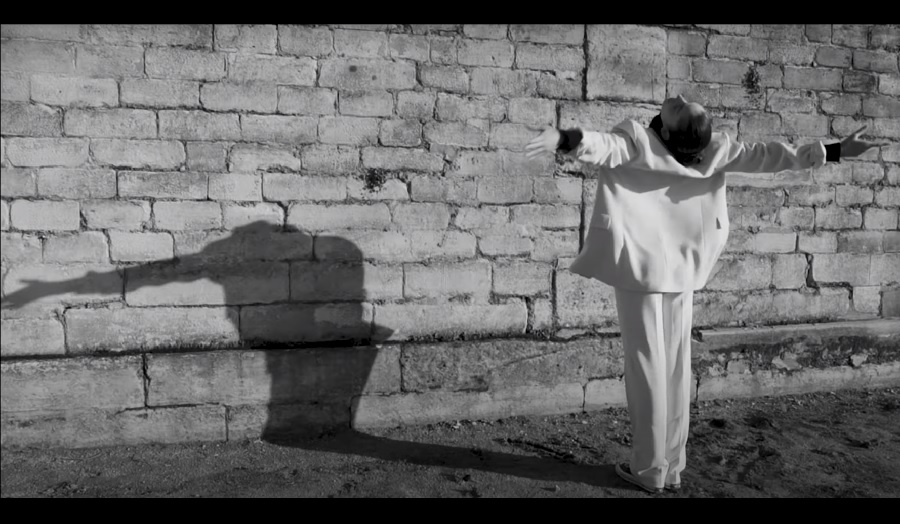


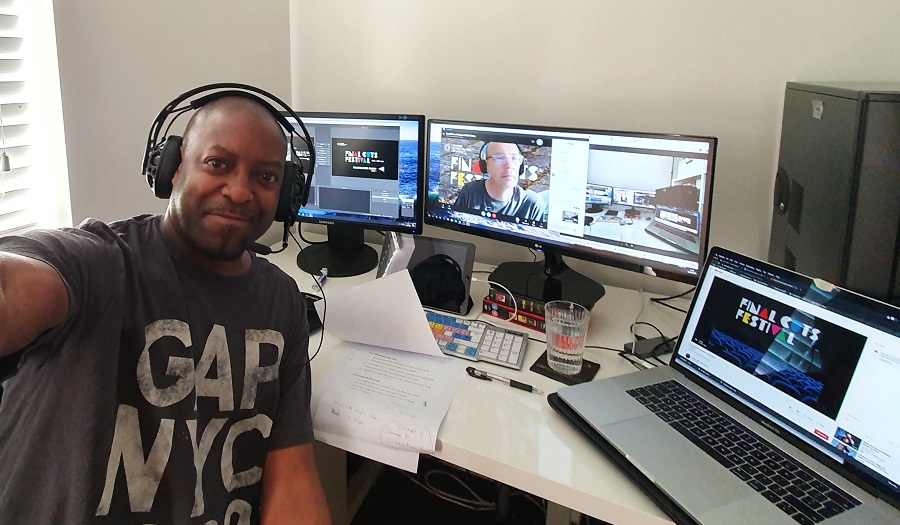
-(1).jpg)
